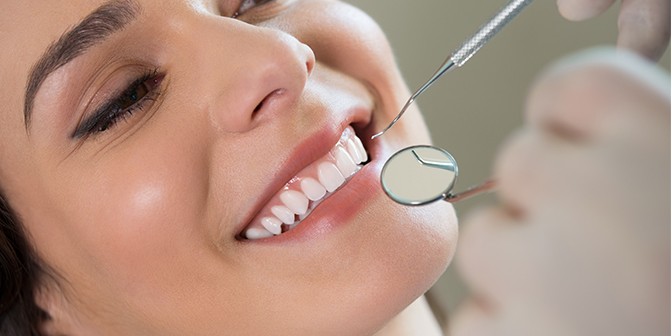The Oregon Health Authority (OHA) released the first in-depth report on oral health care data for Oregon’s coordinated care organizations (CCOs). A growing body of evidence shows that oral health is critical to overall health. In spite of this connection, historically oral health care has been delivered separately from medical care, and too often the two systems don’t communicate well. Oregon’s coordinated care model is committed to integrating physical, oral and behavioral health care to treat the whole person and this report provides Oregon’s CCOs and policy makers with comprehensive oral health data to continue that integration.
“We know that gum disease and poor oral health are associated with heart disease, diabetes, low birth weight and certain types of cancers, and that poor oral health also contributes to missed school and work days,” said Bruce Austin, Oregon Health Authority dental director. “This report shows the important role that oral health plays in the overall health of Oregonians and underscores why integration of physical, behavioral and oral health for Oregon Health Plan members is so important. This report provides us with the data to track results and identify opportunities for improvement.”
Individuals with low incomes are disproportionally likely to experience poor oral health, and people of color can face even worse health outcomes. Recognizing the importance of oral health across the lifespan, Oregon is one of only 13 states that offers comprehensive dental benefits to all adults with Medicaid, as well as children.
Key information in the report released today includes:
— Certain counties in Oregon have fewer dentists compared with the number of residents they serve, and only about two of every five dentists (41.5 percent) report seeing Medicaid patients. This could pose a challenge for members trying to access services.
— Adult CCO members receive oral health services at lower rates than children. Only about one in three adults receive dental services in a given year, compared with a little more than half of children. Adults are also less likely to report having a regular dentist (57 percent of adults compared to 79 percent of children).
— Many members do not receive preventive dental services such as regular cleanings, fluoride treatments, and dental sealants. Only one in five adults and just over half of children (50.1 percent) had a preventive service between July 2015 and June 2016. This is important, because dental diseases are largely preventable.
— When stratified by race and ethnicity, the data show variation between groups. Members who identify as Hawaiian/Pacific Islander consistently receive services at lower rates than other members. Members identifying as Asian American generally have higher rates of service use and follow-up.
Data in this report are specific to members enrolled in CCOs, consistent with other CCO reporting such as the semiannual performance metrics reports. OHA is exploring options to report similar oral health data for the fee-for-service (FFS) population. OHA is also considering capacity to report additional oral health data, including more measures recommended by the Medicaid Advisory Committee as new data become available. OHA also recently released the Oral Health Integration Report and the Oral Health Toolkit that provide CCOs with resources for improving oral health integration. The report released today will be shared with stakeholder groups such as the Medicaid Advisory Committee, Metrics & Scoring Committee and Quality and Health Outcomes Committee to inform interpretation and use of the data.
Links to documents in this release:
Oral Health in Oregon’s CCOs: https://www.oregon.gov/oha/analytics/Documents/oral-health-ccos.pdf
Medicaid Advisory Committee — A Framework for Oral Health Access in the Oregon
Health Plan: http://www.oregon.gov/oha/OHPR/MAC/Documents/MAC-oralhealthframework-Oct2016.pdf
Oral Health Integration Report: https://www.oregon.gov/oha/Transformation-Center/Resources/Oral-Health-Integration-in-Oregon.pdf
Oral Health Toolkit: https://www.oregon.gov/oha/Transformation-Center/Resources/Oral-Health-Toolkit.pdf
Contact Info:
Contact: Courtney Warner Crowell, 971-712-6503, courtney.w.crowell@state.or.us
OHA External Relations, oha.externalrelations@state.or.us





